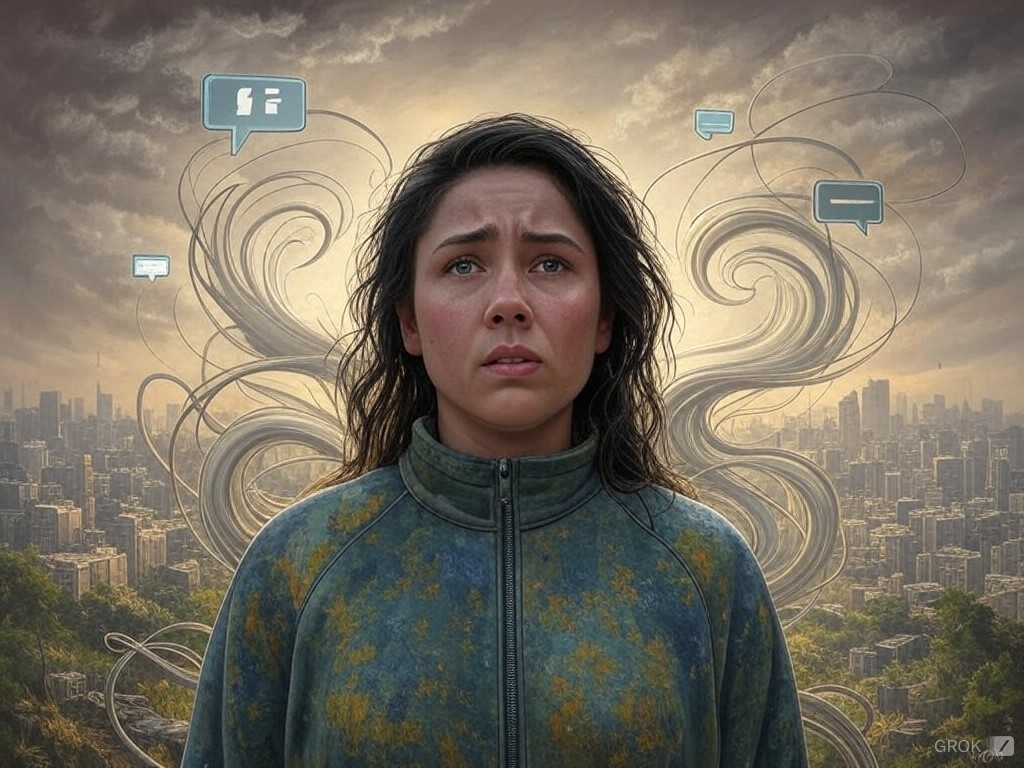
The Rise of Eco-Anxiety: Navigating the Psychological Impact of Climate Change in 2024
In the digital age, where information spreads like wildfire, the growing concern over climate change has not only dominated headlines but has also seeped into the collective psyche, manifesting as what psychologists and psychiatrists now term “eco-anxiety.” With social media platforms like X (formerly Twitter) buzzing with discussions around unprecedented weather events, global temperatures, and the future of our planet, this phenomenon is becoming a hot topic in psychological discourse.
Understanding Eco-Anxiety
Eco-anxiety refers to the chronic fear of environmental doom, including fears related to climate change, species extinction, and the degradation of natural landscapes. This anxiety doesn’t just affect those directly impacted by environmental disasters; it’s increasingly prevalent among younger generations who are inheriting a rapidly changing world. Discussions on X reveal a surge in posts from individuals expressing existential dread about the future, with hashtags like #ClimateAnxiety and #EcoAnxiety gaining traction, signaling a collective mental health challenge.
Symptoms and Impact
The symptoms of eco-anxiety can range from mild worry to severe distress, including:
- Persistent sadness or depression about the state of the planet.
- Anxiety and panic attacks triggered by climate-related news or events.
- Guilt over one’s carbon footprint, leading to changes in behavior like reducing consumption or activism.
- Hopelessness about the future, which can affect motivation and daily life.
These psychological responses are not just individual; they’re collective, impacting community mental health and prompting a new wave of research in psychiatric fields. The discussion on platforms like X shows people are seeking community and support, sharing coping mechanisms, and calling for more mental health resources tailored to this unique form of anxiety.
Professional Perspectives
Psychiatrists and psychologists are beginning to address eco-anxiety in clinical settings, though it’s still relatively new territory. Some advocate for:
- Eco-therapy, which integrates nature into therapeutic practices to alleviate anxiety.
- Cognitive Behavioral Therapy (CBT) adapted to focus on climate-related fears, helping individuals manage their anxiety through structured thinking and behavioral changes.
- Community and group therapy sessions that foster a sense of collective action and resilience.
Experts like Dr. Susan Clayton, a noted environmental psychologist, have been vocal on X about the need for increased awareness and research into how climate change affects mental health. Her posts highlight the urgency for mental health professionals to adapt their practices to include environmental concerns.
The Way Forward
The conversation around eco-anxiety is just beginning, and its relevance in both psychological theory and practice is undeniable. The digital dialogue on X underscores a need for:
- More research to understand the full scope of eco-anxiety and develop effective interventions.
- Educational campaigns to inform the public about eco-anxiety, destigmatize it, and encourage proactive environmental behaviors without overwhelming individuals.
- Policy advocacy for mental health support in response to climate change, ensuring that those most affected have access to care.
As we move further into 2024, the intersection of environmental science, psychology, and psychiatry is not just a frontier for academic exploration but a critical space for societal health. By addressing eco-anxiety, we’re not only responding to a burgeoning psychological issue but also fostering a deeper connection between mental health and environmental stewardship.
This article aims to shine a light on a uniquely modern psychological challenge, one that requires a collective approach for both understanding and mitigation, reflecting the very essence of the discussions currently happening across the internet.


